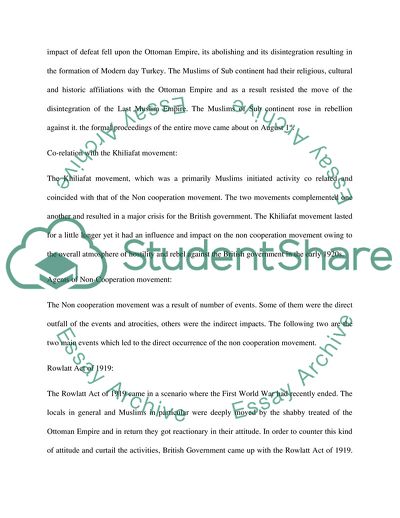Cite this document
(Colonialism and South Asia Assignment Example | Topics and Well Written Essays - 1750 words, n.d.)
Colonialism and South Asia Assignment Example | Topics and Well Written Essays - 1750 words. https://studentshare.org/history/1849974-non-cooperation-movement-british-india-september-1920-february-1922
Colonialism and South Asia Assignment Example | Topics and Well Written Essays - 1750 words. https://studentshare.org/history/1849974-non-cooperation-movement-british-india-september-1920-february-1922
(Colonialism and South Asia Assignment Example | Topics and Well Written Essays - 1750 Words)
Colonialism and South Asia Assignment Example | Topics and Well Written Essays - 1750 Words. https://studentshare.org/history/1849974-non-cooperation-movement-british-india-september-1920-february-1922.
Colonialism and South Asia Assignment Example | Topics and Well Written Essays - 1750 Words. https://studentshare.org/history/1849974-non-cooperation-movement-british-india-september-1920-february-1922.
“Colonialism and South Asia Assignment Example | Topics and Well Written Essays - 1750 Words”. https://studentshare.org/history/1849974-non-cooperation-movement-british-india-september-1920-february-1922.


